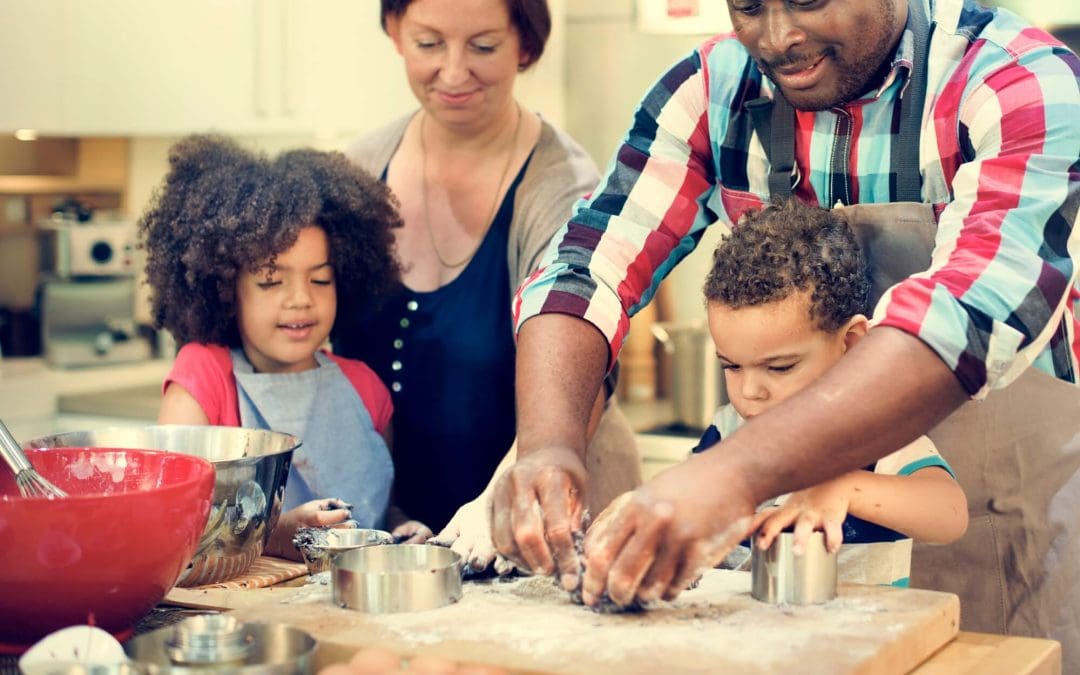The kitchen is often considered the heart of the home, where meals are prepared and families gather. However, it can also be a place where accidents happen if proper safety precautions aren’t taken. Following these essential kitchen safety tips can create a safer environment for everyone.
Keep Your Workspace Clean and Organized for Kitchen Safety
One of the simplest yet most effective ways to maintain safety in the kitchen is to keep your workspace clean and organized. Cluttered counters, spills, and misplaced utensils can lead to accidents. Make it a habit to wipe down surfaces, clean up spills immediately, and store tools and ingredients in their proper places. A tidy kitchen promotes safety and makes cooking a more efficient experience.
Handle Knives with Care
Knives are essential kitchen tools but can be dangerous if not handled properly. Always use a sharp knife, as dull blades require more force, increasing the risk of slipping and causing injury. Ensure that your fingers are tucked in, and use a stable cutting board when cutting. After use, wash knives immediately and store them in a knife block or magnetic strip that is out of reach of children.
Be Mindful of Heat Sources
The stove, oven, and other heat sources are common culprits of kitchen accidents. Always use pot holders or oven mitts when handling hot pans, and never leave the stove unattended while cooking. If you have to step away, turn off the burners or reduce the heat. Make sure pot handles are turned inward, away from the stove’s edge, to prevent accidental spills.
Prevent Fires with Proper Cooking Practices
Fires are one of the most serious hazards in the kitchen. To prevent them, avoid leaving cooking oil unattended on the stove, as it can quickly reach its flashpoint and ignite. Keep flammable materials like dish towels, paper towels, and food packaging away from heat sources. Never use water to extinguish a grease fire; instead, cover the pan with a lid or use a fire extinguisher.
Safeguard Against Electrical Hazards
Modern kitchens are equipped with various electrical appliances that make cooking easier but pose potential risks. Ensure all appliances are in good working condition and that cords are not frayed or damaged. Avoid using multiple high-wattage appliances on the same outlet to prevent overloading circuits. Keep electrical cords away from water and hot surfaces, and unplug appliances when not in use.
Store Food Safely
Proper food storage is crucial for preventing foodborne illnesses, which can be as dangerous as physical injuries. Refrigerate perishable items promptly and store raw meats separately from other foods to avoid cross-contamination. Always check the temperature of your refrigerator and freezer to ensure they are set to safe levels. Use airtight containers to keep food fresh and prevent the growth of bacteria.
Educate Children About Kitchen Safety
Children are naturally curious, and the kitchen can be a fascinating place for them. However, it is important to educate them about the dangers that exist. Teach children the importance of not touching hot surfaces, using sharp objects, or playing near the stove. Encourage them to ask for help when using appliances or handling potentially dangerous items. Establish clear rules about what is off-limits in the kitchen to keep them safe.
Keep a First Aid Kit Handy
Despite your best efforts, accidents can still happen in the kitchen. Be prepared by keeping a well-stocked first aid kit within easy reach. Familiarize yourself with basic first aid procedures, such as treating cuts, burns, and minor injuries. Knowing how to respond quickly can make a significant difference in minimizing the severity of an injury.
Kitchen safety is essential for preventing accidents and ensuring a pleasant cooking experience. Remember, a little precaution goes a long way in keeping your kitchen free of risks and hazards.
FAQs on Kitchen Safety
How can I safely handle and store raw meat to avoid contamination?
Always use separate cutting boards for raw meat and other foods. After handling raw meat, thoroughly wash your hands, utensils, and any surfaces it has touched with hot, soapy water. Store raw meat on the bottom shelf of the refrigerator to prevent juices from dripping onto other foods, and keep it in a sealed container or plastic wrap.
What are some signs that a kitchen appliance needs maintenance?
Signs that a kitchen appliance needs maintenance include unusual noises, a burning smell, or inconsistent performance, such as an oven not heating evenly or a refrigerator not maintaining the correct temperature. The appliance may need repair or replacement if you notice frayed cords, rust, or any physical damage. Regularly cleaning and checking your appliances can extend their lifespan and ensure they operate safely.
How can I safely thaw frozen food?
The safest way to thaw frozen food is in the refrigerator, allowing it to thaw gradually while staying at a safe temperature. If you need to thaw food more quickly, place it in a sealed plastic bag and submerge it in cold water, changing the water every 30 minutes. You can use the microwave as a last resort but cook the food immediately afterward to prevent the growth of bacteria.
How can I prevent cross-contamination when preparing meals?
Always use separate cutting boards, utensils, and plates for raw and cooked foods to prevent cross-contamination. Wash your hands thoroughly when handling different types of food. Keep raw meat, poultry, and seafood away from other foods, and clean all surfaces and tools that come into contact with raw ingredients before using them for anything else.
Inspection Services of Wisconsin provides professional inspection services for homebuyers and sellers in Northeast and South Central Wisconsin. Contact us to schedule an appointment.

